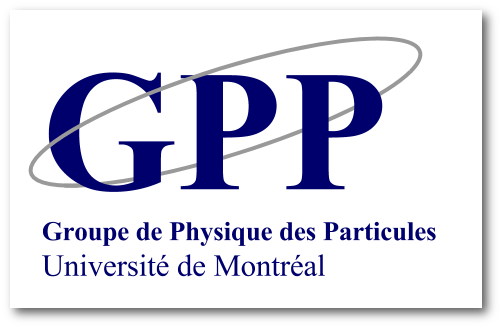You are here
ATLAS
The ATLAS experiment is based at CERN in Switzerland. The ATLAS detector observe the proton-proton collisions produced by the Large Hadron Collider, the most powerful particle accelerator ever created. The LHC is capable of producing every particles known to date including the Higgs boson discovered in 2012 (which led to the 2013 Nobel Prize). Because of this, ATLAS is a very versatible experiment capable of studying a large fraction of particle physics, a little by like the Hubble or James Webb telescopes for astrophysics. Several hundreds of papers have been produced by the ATLAS collaboration since we started taking data in 2011.
The UdeM group is involved in several aspects of the ATLAS experiment, from detector operation to the final analysis of the data. For data analysis, we specialize in the search for new physics, in particular supersymmetry and resonances decaying to two bosons. We are also involved in the electron reconstruction and the charged particle tracking. We are very interested in applying machine learning and deep learning techniques to optimize the analysis of the LHC data. From the detector point-of-view, we are involved in the operation and future design of the Timepix detectors as well as the construction of the silicon detectors of the future.
Don’t hesitate to contact us if you’re interested in an internship or graduate studies in our group!

